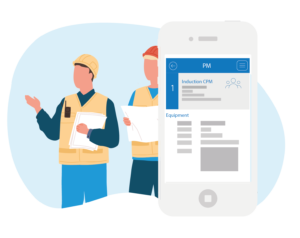Differentiate your real estate business with data
It’s no secret that real estate businesses generate massive amounts of data as part of their everyday operations. But how can this data be used to your advantage to differentiate your business and make more informed decisions?
Big Data was originally defined by Gartner as larger, more complex data sets, especially from new data sources. These data sets are so voluminous that traditional data processing software just can’t manage them. But however cumbersome this data may be, it can be used to address complex business problems even during an era that’s defined by uncertainty and the need for flexibility.
Developing a data strategy for real estate
To best approach the growing masses of data, you’ll need a plan and an enterprise-wide set of policies that define how data will be collected, stored, processed and communicated. These policies should address data ownership, quality, access, security, privacy, ethics and retention. It should include master data management practices that cover entering, aggregating, consolidating, de-duping, standardizing, and maintaining data throughout the enterprise.
Unfortunately, enterprises typically realize they need data governance and master data management well after data is being captured and struggles to make sense from data become all too real. But in this case, that’s okay! Why? Because the future is full of data – far more so than the past. The trick is to make sure your business is ready for what the future holds.
How can you best harness data?
After tapping into and organizing data, the next challenge is to find the signal in the noise. Your business must find the data that really matters and that can help drive better business results, better workflows and better customer and stakeholder service.
While traditional reporting still serves to memorialize a point in time, you can do better. Real estate executives should not need to search through a wall of numbers, an alphabetically sorted list of properties, to uncover the metrics that need their attention.
It is increasingly important to take those key data elements from reports and move them to dashboards and dynamic grids with the ability to interact and to drill down. Sorting and filtering make data more consumable. The ability to drill down into underlying transactions, lease terms, data sources and contract obligations makes business-critical information more accessible and allows for self-guided discovery of further insights. Finding the signal in the noise is not about all the data, it is about the right data, in the right place, at the right time, for the right user.
Pushing your real estate enterprise to be more data driven is imperative. Enterprises should use historical data to inform on future trends, pointing you to likely outcomes and potential options while using current data to benchmark across your portfolio, driving up performance.
As the Internet of Things (IoT) grows in deployment, more and more data will become available, allowing for smarter uses of data to differentiate both decision making and services. Tuning space conditions to daily occupancy and usage patterns, understanding out-of-norm conditions that require maintenance, and much more. And we have not even scratched the surface of what the data scientists will do to drive further differentiation based on our vast array of data.
In a world that is increasingly dominated by data, those who can see clearly into their data are the ones who will gain the competitive advantage. Learn how you can equip your organization with the tools and solutions needed to harness and understand your data.
Affordable Housing Asset Manager Insights: Maximize Portfolio Performance by Supporting Housing Operators
From rising operational costs to increased demand for flexibility and technology, asset managers are navigating unique challenges to support property management teams while ensuring portfolio health and resilience. Recent MRI research delves into the…

